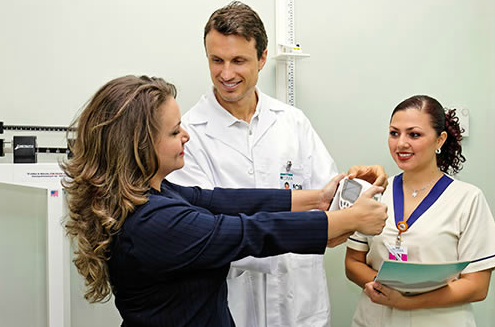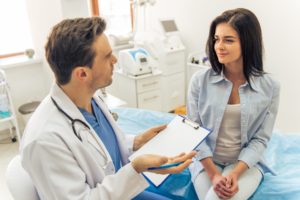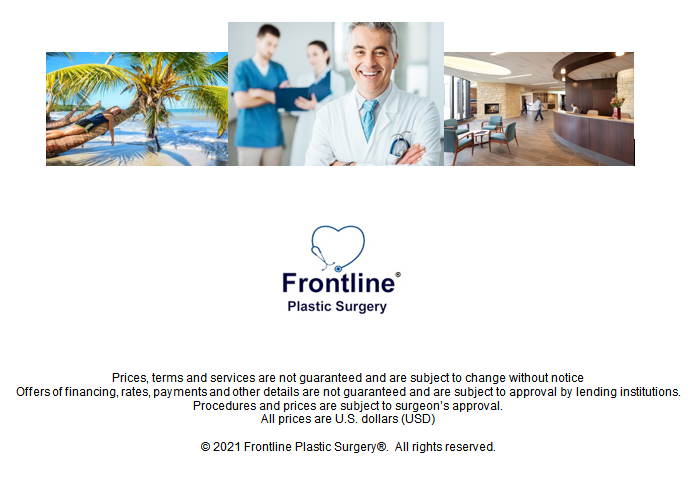
Pre-Surgery Lab Test Information.
– Pre-op tests (lab tests) are required before surgery. You may have them done conveniently here, or at home with your own lab or doctor. If done at home, just have them done within 6 months of your surgery and bring the results with you.

Section 1 – Lab tests.
You may skip this section if you plan to have your tests done here. Please go to the next section.
If 44 years of age or under, and if having them at home, please ask your local doctor or lab for the following standard pre-op tests.
- Complete blood count (CBC)
- HGB HCT RBC,
- Platelets, Prothrombin Time (PT),
- Partial Thromboplastin Time (PTT),
If 45 years of age or older, and if having them at home, please ask your local doctor or lab for the following standard pre-op tests.
- Complete blood count (CBC)
- HGB HCT RBC,
- Platelets, Prothrombin Time (PT),
- Partial Thromboplastin Time (PTT),
- BUN, Creatinine
- Glucose
- EKG

Section 2 – Suggested do’s and don’ts before surgery.
Do’s and Don’ts prior to surgery.
– No aspirin, Advil, Motrin, or medicines containing aspirin for four weeks as it interferes with normal blood clotting. Tylenol is fine to take prior to surgery if needed.
– No Vitamin E, natural medicines (like Arnica, Ginseng, Garlic) for two weeks before surgery.
– No Roaccutan (Accutane) ten days before surgery.
– Exercise is an important way to prepare yourself for surgery. If you don’t regularly exercise, you may start now, but gently. Don’t exercise to soreness, especially if surgery is near.
– In particular, for three weeks before surgery, take no over-the counter drugs except acetaminophen (Tylenol, Datril). Almost all over-the counter drugs interfere with the blood’s clotting ability and can make you bleed excessively. The doctors should approve any other medicine. Please write to us with any questions and we will assist you.
– If you smoke, plan to quit 4 weeks prior to surgery, but no later than one to two weeks before
your surgery and do not resume for at least four weeks after surgery. We know this is difficult. It is not a requirement for surgery, only advice. Tobacco is bad for your whole body and it has a very negative effect on healing. Nicotine constricts blood vessels, reducing blood flow to many areas, the most significant of which is your skin. Smoking also negatively affects body functions and organs, and puts you at risk for significant adverse medical conditions. Bottom line, if you smoke, you can expect slower healing and an elevated risk of complications. Please plan to quit now if at all possible.
– Avoid mosquito bites, sunburn or overexposure to the sun before surgery, as surgery may need to be postponed if mosquito bites or if you become sunburned. Please do not go on a stringent diet as this can inhibit your ability to heal.
– If planning to go on vacation, sightsee or enjoy tours while in Costa Rica, please choose non-strenuous tours. Stress, strain, exertion, heat and sweating can rupture stitches and cause infection. The skin expands and simply won’t heal right under such conditions. Please keep in mind that you will not be fully healed until 8 to 12 weeks following surgery.
– You may wish to take extra Vitamin C prior to surgery to assist in healing.
– Do not take diet pills (like Redux or any other kind of diet pill) and do not undertake a heavy diet program 2 months before surgery.- If you are having liposuction, you may take an iron supplement (1 a day) for approximately 30 days prior to surgery if you wish. If iron causes constipation, you may take it every other day for about two
months instead. This is not mandatory, but simply an advisement. Your recovery will be quicker and you will be more energetic afterwards if you have some extra iron before surgery.
– If you have any medical condition that may affect surgery, or if you are taking any prescribed or over-the-counter medicines that you are unsure if it will have an effect on surgery, please write us at info@frontlineplasticsurgery.com
– Please note: There is no need to fast before your lab tests but you MUST fast (no food) 8 hours before surgery. There are NO exceptions. Your surgery will be postponed if you have eaten within an 8 hour period of surgery. You may sip a little water if necessary for prescription medicines, but it is best to avoid water if possible so your stomach stays calm and also you will not need to go to the bathroom upon awakening. You must not eat or drink past midnight the night before surgery.
– You will be released to the Costa Rica Medical Center Inn following surgery. The doctors will coordinate your pre-surgery consultation, surgery preparation, follow-up appointments, transportation and post-op medical care with their nurses and staff.

Section 3 – Special instructions from the doctors regarding your surgery.
In addition to the above do’s and don’ts, the doctors have requested that you stop taking the following medicines according to the schedule below. If any questions, please consult your personal physician for advice regarding IF you should stop, or IF there are any substitutions necessary. You may also write to us for additional information if you have questions or concerns and we will ask the doctors and reply back to you:
Medication When to Stop
– Warfarin (Coumadin). 1 week prior to surgery.
– Plavix (Clopidrogel). 1 week prior to surgery.
– Alcohol. 1 week prior to surgery.
– Systemic steroids. 6 weeks prior to surgery.
– Isotretinoin. 6 months to 1 year prior to surgery.
Herbal/Health Supplements When to Stop
– Supplements and Natural 2 weeks prior to surgery.
foods high in salicylate (curry,
pepper, ginger, paprika,
thyme, cinnamon, dill, oregano,
turmeric, licorice, peppermint,
raisins, cherries, cranberries,
oranges, prunes, grapes,
strawberries, chewing gum,
honey, wine, cider, vinegar).
– Vitamin E. 2 weeks prior to surgery.
– Fish oil/omega 3 fatty acids. 2 weeks prior to surgery.
– Gingko biloba. 1 week prior to surgery.
– St. John’s wort. 1 week prior to surgery.
– Garlic. 1 week prior to surgery.
Reminder: It is important to consult with your physician about prescribed medications. Do not suspend any without his/her clearance. In general, try to suspend any supplement not prescribed by a physician. Please inquire if any concerns about medications or foods not on the list.

Section 4 – Costs of pre-surgery tests.
All quoted surgery prices include the costs of surgery, the doctor’s fees, hospital or surgery room fees related to the surgery, medical supplies related to the surgery, anesthesiologist’s fees and all follow-up appointments.
Prices do not include lab tests (typically $95 here), EKG (if needed), any garments (if needed), pre-op evaluation and work-up (approximately $100), post-op medications (approximately $100), post-op recovery inn accommodations or airfare. There are no applicable taxes. All prices are “net”, with no further discounts.
A Cardiologist evaluation (EKG) is required if you are 45 years of age or more or if a medical condition warrants it. The test can be done here or at home (approximately $80 here). If done at home. it must done within 6 months of surgery and it is important that you bring the Cardiologist’s written evaluation (the graph is not necessary).
For any reason, if your medical condition should require an unplanned overnight stay at the surgery center for observation, there may be extra charges but this is very rare. If an unexpected medical condition or emergency occurs and hospitalization is required, please be prepared for extra hospital costs.
Follow-up doctor’s appointments and the removal of stitches will be set during your recovery period.

